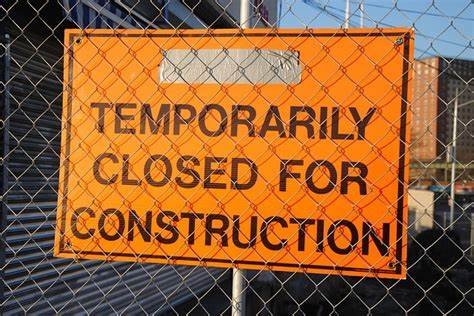Civil engineering is a vital field that shapes the infrastructure of our world. From bridges and roads to buildings and water systems, civil engineers design and build the structures that keep society running smoothly. However, civil engineering professionals face a variety of challenges in their work. These obstacles can range from technical difficulties to environmental concerns and even social issues. In this article, we will explore some of the key challenges facing civil engineering professionals today.

1. Technological Advancements and Integration
As technology continues to evolve, civil engineers must stay updated with new tools and systems. Technological advancements such as Artificial Intelligence (AI), Building Information Modeling (BIM), and smart infrastructure are changing the way civil engineers work. However, integrating these technologies into traditional practices is often challenging.
For many professionals, the adoption of new technology requires significant training and investment. Additionally, engineers need to ensure that new systems are compatible with existing infrastructure. As a result, the key challenges facing civil engineering professionals include the difficulty of staying ahead of the curve in an ever-changing technological landscape.
2. Sustainability and Environmental Concerns
Sustainability is becoming an increasingly important focus in civil engineering. Engineers are being asked to design structures that not only serve their purpose but also minimize environmental impact. This includes using sustainable materials, reducing energy consumption, and considering long-term environmental effects.
However, meeting these sustainability goals can be difficult. The key challenges facing civil engineering professionals in this area include balancing the need for environmentally friendly solutions with the practical requirements of a project. For example, finding materials that are both sustainable and cost-effective can be challenging.
3. Aging Infrastructure
In many parts of the world, infrastructure is ageing and in need of repair. Bridges, roads, and buildings constructed decades ago are showing signs of wear and tear. Civil engineers must find ways to update and repair this infrastructure while maintaining safety and efficiency.
One of the key challenges facing civil engineering professionals is working with outdated systems and structures. Engineers must often make decisions based on incomplete or outdated data, which can increase the complexity of repairs. Additionally, balancing the need for maintenance with the demands of new construction projects presents a constant challenge for civil engineers.
4. Budget and Time Constraints
Budget and time constraints are common in civil engineering projects. Whether it’s a new building or a major transportation system, projects often face limitations on both resources and timelines. Engineers must find ways to deliver high-quality work within these constraints, which can lead to challenges in planning, design, and construction.
The key challenges facing civil engineering professionals in this area include managing project costs, handling unexpected delays, and ensuring that projects stay within budget. Furthermore, engineers must work closely with stakeholders to ensure that project goals are met without compromising on quality or safety.
5. Safety Concerns
Construction sites can be hazardous places, and ensuring the safety of workers and the public is a top priority for civil engineers. From heavy machinery to working at great heights, the risks involved in civil engineering projects are significant. Engineers must develop plans to minimize these risks and ensure that safety protocols are followed.
One of the key challenges facing civil engineering professionals is preventing accidents while still meeting tight deadlines. Safety training, regular inspections, and proper equipment are essential, but maintaining a safety culture on-site can sometimes be challenging, especially when working under pressure.
6. Legal and Regulatory Compliance
Civil engineers must navigate a complex web of local, state, and federal regulations when designing and constructing projects. These regulations cover everything from environmental standards to safety requirements. Failing to comply with these laws can result in delays, fines, or even the shutdown of a project.
The key challenges facing civil engineering professionals in this area include staying up-to-date with changing regulations, obtaining the necessary permits, and ensuring that all work is legally compliant. This requires careful planning and a deep understanding of the regulatory environment.
7. Climate Change and Natural Disasters
Civil engineers are increasingly being asked to design infrastructure that can withstand the effects of climate change and natural disasters. From flooding to extreme temperatures, weather-related challenges are becoming more common. Engineers must design buildings, roads, and bridges that are resilient to these changes.
One of the key challenges facing civil engineering professionals is incorporating climate change considerations into the design and construction process. Engineers must plan for unpredictable weather patterns and ensure that infrastructure can withstand future environmental challenges.
8. Workforce Shortages and Skill Gaps
The civil engineering industry, like many others, faces a shortage of skilled workers. With an ageing workforce and a lack of young professionals entering the field, many companies are struggling to find qualified engineers and technicians.
This shortage creates key challenges facing civil engineering professionals, such as increased workload, difficulty finding talent, and the need for continuous training. To address this issue, the industry must find ways to attract and retain younger generations while also providing opportunities for ongoing skill development.
Conclusion
Civil engineering professionals face a wide range of challenges that impact their work and the world around them. From technological integration to sustainability, ageing infrastructure to workforce shortages, these challenges require innovative solutions and constant adaptation. As the industry continues to evolve, civil engineers must remain adaptable, knowledgeable, and committed to overcoming these obstacles to create safer, more efficient, and sustainable infrastructure for the future. The key challenges facing civil engineering professionals will continue to shape the field, but with the right approach, engineers can navigate these challenges and make a lasting impact.




